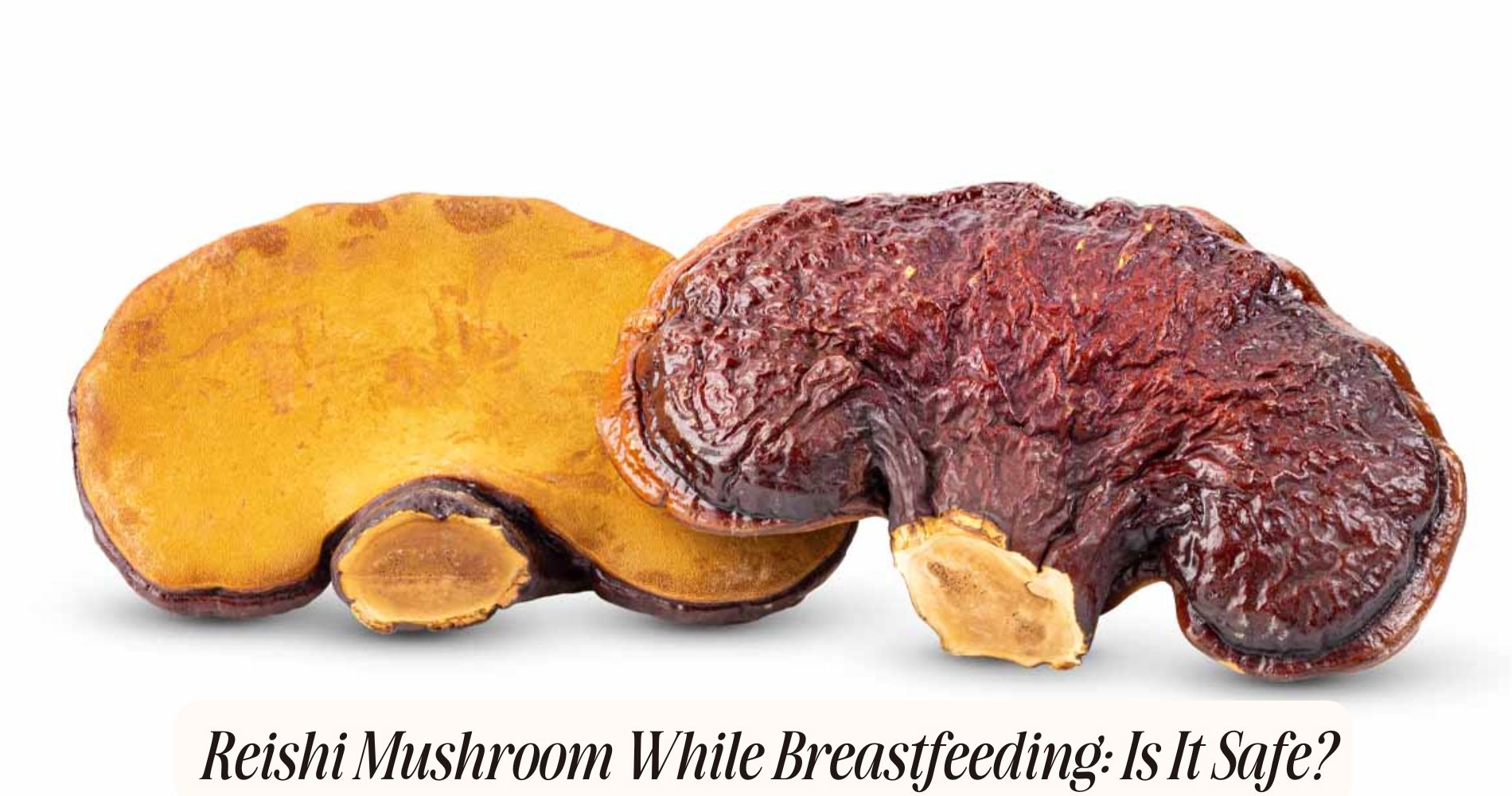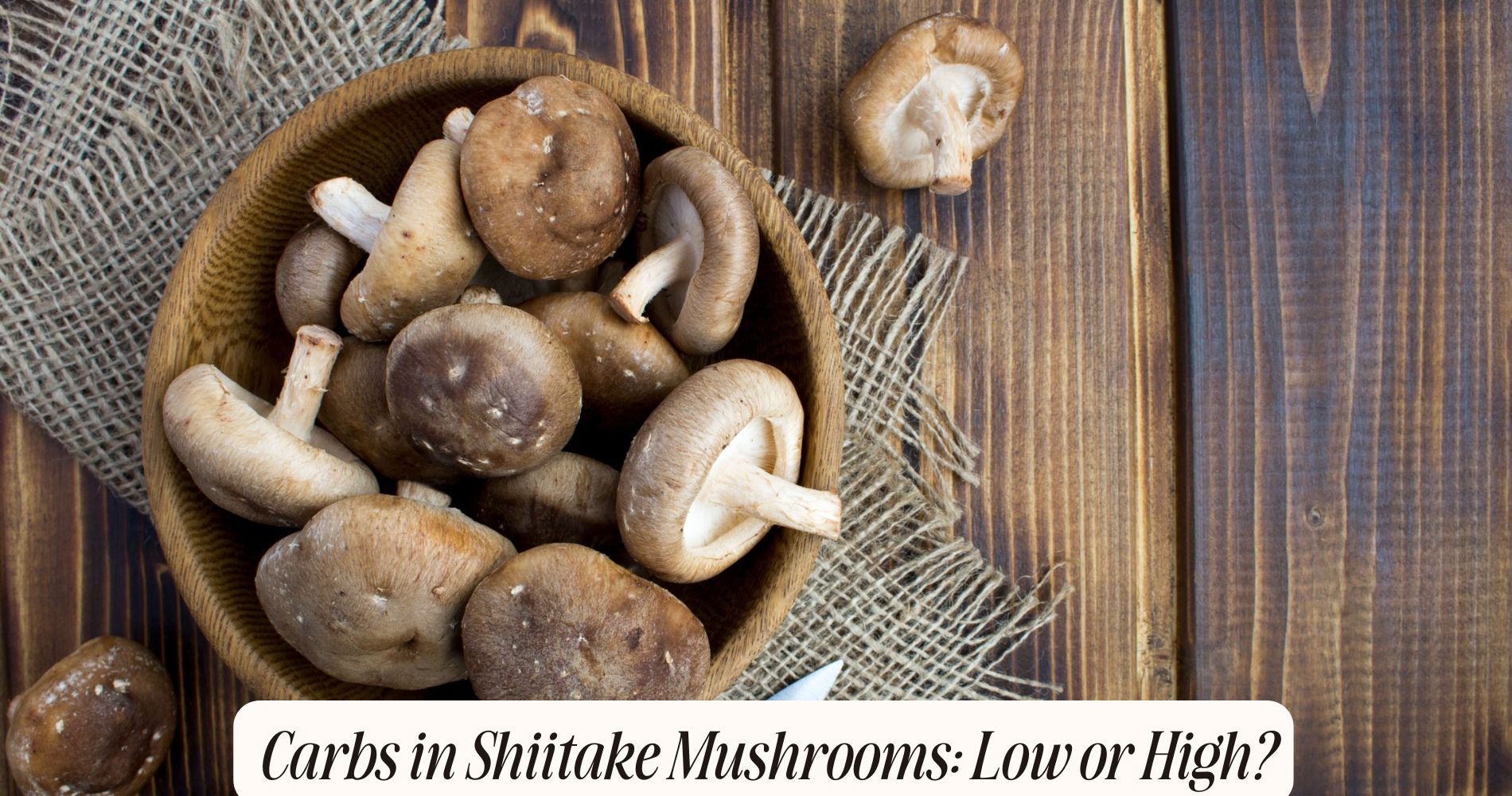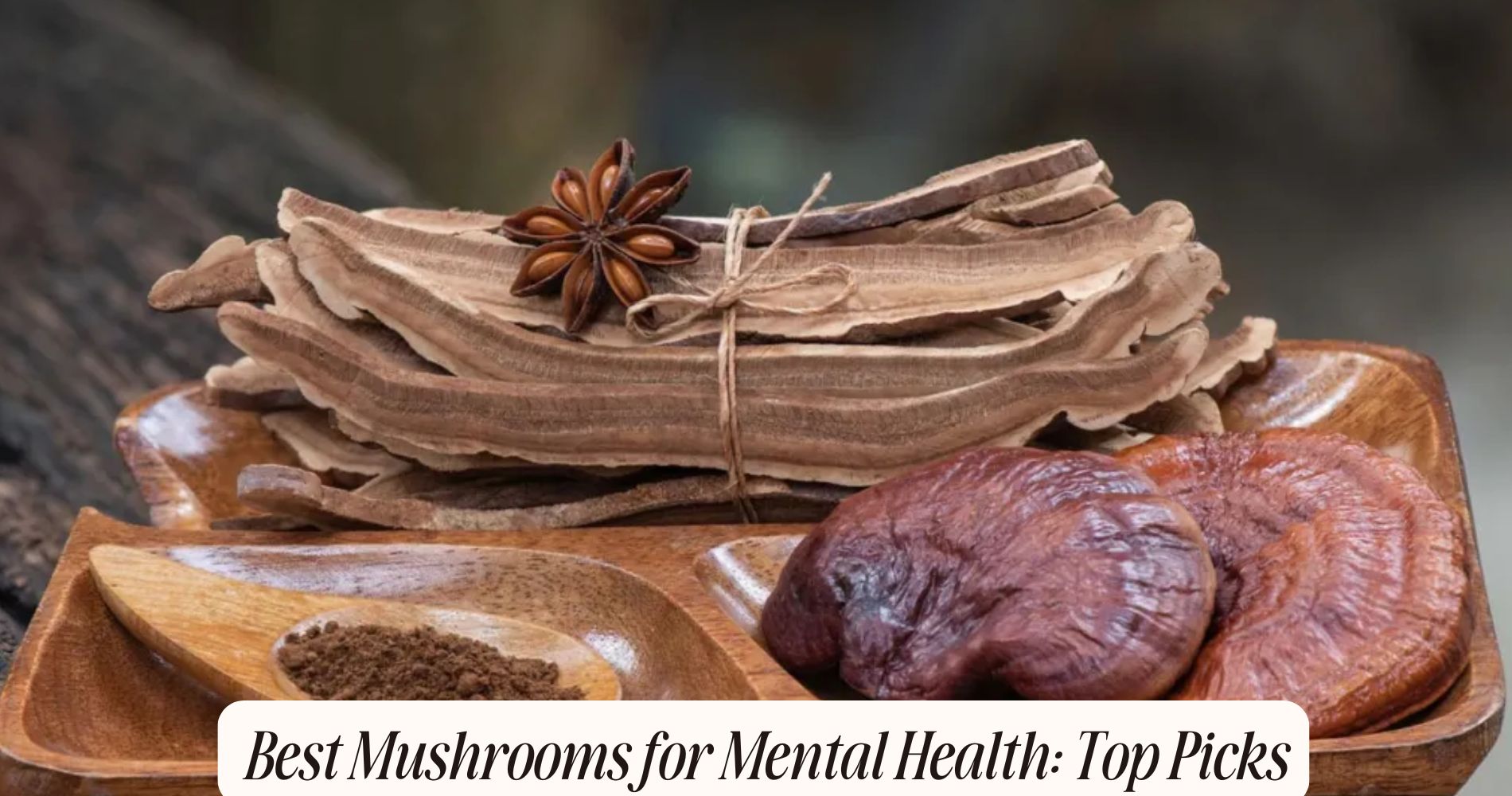
Reishi Mushroom While Breastfeeding: Is It Safe?
Using reishi mushrooms while breastfeeding comes with safety concerns due to limited research. While it may offer immune support and antioxidant benefits, it's important to consult your healthcare provider first. There isn't enough information on how reishi affects breast milk or your baby, so starting with a low dose, if approved, is recommended. Keep an eye on your baby for any changes in feeding or behavior after introducing it. Individual health and potential interactions matter, so understanding the risks and benefits is vital. You can discover more insights on safe dietary choices that support your health and your baby's well-being.
What Is Reishi Mushroom?
Reishi mushroom, scientifically known as Ganoderma lucidum, is a type of fungus that's been used in traditional medicine for thousands of years. Its history traces back to ancient China, where it was revered for its supposed health benefits and often called the "mushroom of immortality".
Reishi has a rich cultural significance, appearing in various texts and folklore, and is commonly associated with longevity and wellness.

You may find that there are several reishi varieties, each differing slightly in appearance and properties. The most recognized types include red, black, and white reishi.
Red reishi, the most sought after, is often used in supplements due to its potential health benefits. Black reishi is known for its slightly different chemical composition, while white reishi is typically less potent but still valued in certain traditional practices.
While reishi mushroom has a longstanding history in herbal medicine, it's important to approach its use with caution, especially during breastfeeding.
Understanding the variations and historical context can help you make informed decisions about incorporating reishi into your wellness routine.
Nutritional Benefits of Reishi
Reishi mushrooms offer several nutritional benefits that can be particularly helpful for breastfeeding mothers.
They support your immune system, provide antioxidant properties, and may even help reduce stress.
Incorporating Reishi into your diet could enhance your overall well-being during this important time.
Immune System Support
Supporting your immune system while breastfeeding is vital, and incorporating Reishi mushroom may offer significant benefits. This powerful fungus is known for its immune-modulating properties, which can help balance your immune response.
When you're breastfeeding, your body is working hard to provide nutrients and antibodies to your baby, making it important to support your health.
Research suggests that Reishi can enhance your immune function, potentially lowering the risk of infections. This is particularly important during breastfeeding, as your immune health directly impacts the quality of your breast milk.
The breastfeeding benefits of Reishi may also extend to your baby, as a well-supported immune system can help protect your child from illnesses.
Moreover, Reishi contains bioactive compounds like triterpenes and polysaccharides, which are believed to contribute to immune modulation.
By incorporating Reishi into your routine, you might find it easier to maintain your health and well-being while nursing.
However, it's important to consult with your healthcare provider before adding any new supplement to your diet, ensuring it aligns safely with your breastfeeding journey.
Antioxidant Properties
The antioxidant properties of Reishi mushroom can play an essential role in your nutritional well-being while breastfeeding. These mushrooms are rich in compounds like polysaccharides and triterpenes, which are known for their strong antioxidant impact.
Incorporating Reishi into your diet may help combat oxidative stress, a condition that can arise during breastfeeding due to physical and emotional demands.
Oxidative stress can have negative effects on cellular health, potentially impacting both you and your baby. By consuming Reishi mushrooms, you might enhance your body's ability to neutralize harmful free radicals, promoting overall cellular health.

This can be particularly beneficial during breastfeeding, a time when your body undergoes significant changes and requires peak nutrients.
While the research on Reishi's specific benefits during breastfeeding is still growing, its antioxidant properties are well-documented. You should consider discussing with your healthcare provider whether Reishi is a suitable addition to your diet.
This balance of antioxidants can support your health, helping you feel more energized and resilient as you nurture your little one.
Stress Reduction Benefits
Breastfeeding can be a demanding time, often accompanied by heightened stress levels. As a new mother, you might find it challenging to balance your needs with your baby's. This is where reishi mushroom may come in handy. Known for its adaptogenic properties, reishi can help your body adapt to stress, promoting natural relaxation.
Studies suggest that reishi mushroom can contribute to mood enhancement, which is especially beneficial during your breastfeeding journey. The compounds in reishi, such as triterpenes, have been shown to reduce anxiety and improve overall emotional well-being. By incorporating reishi into your diet—whether through supplements or teas—you might experience a calmer mindset, enabling you to handle the demands of motherhood more effectively.
However, it's important to approach this with caution, especially while breastfeeding. While reishi is generally considered safe, always consult with your healthcare provider before introducing any new supplements.
They can help you verify that it fits well with your breastfeeding regimen and overall health. By prioritizing your well-being, you can create a more positive environment for both you and your baby.
Potential Risks During Breastfeeding
Steering through the world of herbal supplements like reishi mushroom while breastfeeding requires caution due to potential risks.
While reishi is often praised for its health benefits, safety concerns arise when you consider its effects on both you and your baby. Limited research exists on the impact of reishi during lactation, making it vital to proceed carefully.
One key risk involves the possibility of adverse reactions. Reishi can interact with medications and may cause allergic responses in some individuals. Before you start any new supplement, it's essential to consult with your healthcare provider to evaluate your specific situation.
Dosage recommendations are another important factor. There isn't a standardized dosage for breastfeeding women, and high doses may lead to side effects such as digestive upset or fatigue.
Starting with a low dose, if approved by your doctor, can help you monitor any potential reactions.
Ultimately, while reishi mushroom has many potential benefits, the unknowns surrounding its use during breastfeeding warrant a cautious approach.
Prioritize your and your baby's health by thoroughly discussing any supplement intake with your healthcare professional.
Research Studies on Reishi
Exploring research studies on reishi mushroom reveals a mix of promising benefits and notable gaps, especially regarding its use during breastfeeding. Reishi, known for its immune-boosting properties, has shown potential in various studies. For instance, some research highlights reishi benefits like reducing inflammation and enhancing overall well-being, which could be particularly appealing for nursing mothers seeking natural ways to support their health.

However, when it comes to breastfeeding safety, the data is limited. Most studies focus on reishi's effects in adults and don't specifically address its impact on lactation or infant health. While some compounds in reishi may be beneficial, there's insufficient evidence to confirm that these benefits extend to breastfeeding mothers or their infants without risk.
Additionally, the lack of rigorous, large-scale studies raises concerns about the potential effects of reishi on breast milk composition. Until more targeted research is conducted, it's important for nursing mothers to approach reishi with caution and consult healthcare professionals before incorporating it into their routine.
Balancing the potential reishi benefits with the unknowns surrounding breastfeeding safety is essential for informed decision-making.
Recommendations for Nursing Mothers
Before incorporating reishi mushrooms into your diet while breastfeeding, it's vital to consult your healthcare provider to guarantee it's safe for you and your baby.
Once you start, closely monitor your baby's reaction for any unusual symptoms or changes in behavior.
This careful approach helps confirm both your well-being and your baby's health.
Consult Healthcare Provider
When it comes to using reishi mushrooms while breastfeeding, consulting your healthcare provider is vital. They can provide personalized advice based on your unique health situation and breastfeeding goals.
While reishi mushrooms are known for their potential health benefits, understanding their lactation effects is significant. Some studies suggest that certain compounds in reishi mushrooms may influence milk production or composition, but research is still limited.
Your healthcare provider can help determine the appropriate dosage guidelines for you. They'll consider factors such as your overall health, any underlying conditions, and other supplements or medications you might be taking. This guarantees that you're using reishi mushrooms safely during lactation.
It's also important to discuss your baby's health, as some substances can transfer through breast milk. Your provider can guide you on how to monitor any potential side effects in both you and your baby.
Always communicate openly about your choices, and don't hesitate to ask questions. By consulting your healthcare provider, you'll make informed decisions that support both your well-being and your baby's health.
Monitor Baby's Reaction
Monitoring your baby's reaction after introducing reishi mushrooms into your diet is essential for breastfeeding mothers. While reishi mushrooms are known for their potential health benefits, every baby is different, and their reactions can vary.
Start by observing any changes in your baby's behavior or feeding patterns. Look for baby signals like increased fussiness, changes in sleep, or alterations in appetite.
If your baby exhibits signs of discomfort or unusual behavior, consider whether reishi mushrooms could be a factor. Keep a food diary to track when you consume reishi and note your baby's responses. This can help you identify patterns and determine if there's a correlation between your diet and your baby's behavior.
It's also wise to wait a few days after introducing reishi before evaluating your baby's reaction fully. Some effects may not be immediate, and a short observation period can provide clearer insights.
If you notice consistent negative reactions, consult your healthcare provider for guidance. They can help you decide whether to continue consuming reishi mushrooms while breastfeeding or suggest alternatives that may be safer for you and your baby.
Alternatives to Reishi Mushroom
If you're looking to switch things up from Reishi mushroom while breastfeeding, there are several alternatives that can offer health benefits without the uncertainties. One popular option is turmeric, known for its anti-inflammatory properties and numerous turmeric benefits. It contains curcumin, which may help support your immune system and promote overall wellness.

You can easily incorporate turmeric into your diet by adding it to smoothies, soups, or even golden milk.
Another alternative is ashwagandha, which has been used in traditional medicine for centuries. While you may not want to take it in concentrated supplement form while breastfeeding, you can explore ashwagandha alternatives like herbal teas or powders that are formulated specifically for postpartum health.
These can help manage stress and improve your mood.
In addition to these, consider incorporating other nutrient-rich foods into your diet, such as leafy greens, berries, and nuts, to support your health during breastfeeding.
Consulting Healthcare Professionals
Consulting healthcare professionals is essential when considering dietary changes during breastfeeding. Your healthcare provider can offer personalized healthcare advice tailored to your individual needs and breastfeeding concerns. They can help you assess the safety and potential effects of incorporating reishi mushroom into your diet.
Research shows that while reishi mushrooms may have health benefits, there's limited evidence regarding their safety for breastfeeding mothers and their infants. Since each person's body reacts differently, discussing your specific situation with a healthcare professional is vital. They can provide insights on potential risks, benefits, and alternatives that suit your lifestyle and health goals.
Additionally, healthcare professionals can guide you on appropriate dosages and forms of reishi if they deem it safe for you. Knowledgeable practitioners can also monitor any adverse effects or changes in your breastfeeding experience, ensuring both you and your baby remain healthy and thriving.
Ultimately, prioritizing open communication with your healthcare provider can empower you to make informed decisions about your diet while breastfeeding. Don't hesitate to reach out for expert advice to address any uncertainties you may have.
Boost Your Wellness Naturally with Well Gummies' Ultimate Wellness Bundle
If you're looking for a convenient way to enjoy the benefits of mushrooms while balancing daily demands, Well Gummies' Ultimate Wellness Bundle is the perfect solution. This easy-to-use gum chew product includes All-in-One Mushroom Gummies for daily support and Lion's Mane Focus and Energy Gummies for an extra boost when you need it most. With 10 powerful mushrooms, these vegan gummies fuel your brain, enhance your energy, and support immune health—all while tasting like fresh wild berries. No jitters, no crash—just natural, all-day vitality!
Frequently Asked Questions
Can Reishi Mushrooms Affect Milk Supply While Breastfeeding?
Reishi mushrooms may impact milk production, though evidence is limited. If you're considering herbal supplements, it's crucial to consult your healthcare provider to guarantee they won't interfere with breastfeeding or your overall health.
Are There Any Known Allergies to Reishi Mushrooms in Nursing Mothers?
While reishi mushroom allergies are rare, some nursing mothers may experience reactions, such as skin irritations or gastrointestinal issues. It's essential to monitor your body and consult a healthcare provider if you notice any adverse symptoms.
How Is Reishi Mushroom Typically Consumed?
You can consume reishi mushrooms in various ways, like teas, supplements, or extracts. Each method offers unique reishi benefits, enhancing immunity and reducing stress. Choose a consumption method that fits your lifestyle and health needs.
Can Reishi Mushrooms Interact With Common Breastfeeding Medications?
Reishi mushrooms may have potential benefits, but they can interact with some medications. It's essential to consult your healthcare provider about any medication interactions before incorporating reishi into your routine, especially while breastfeeding.
Is There a Recommended Dosage of Reishi for Breastfeeding Mothers?
There's no universally recommended dosage of reishi for breastfeeding mothers. If you consider using it, discuss potential benefits and the best forms with a healthcare professional to guarantee safety and appropriateness for your situation.
Conclusion
In conclusion, while reishi mushroom offers potential health benefits, its safety during breastfeeding isn't well-established. Due to possible risks and limited research, it's important to approach its use cautiously. If you're considering adding reishi to your routine, consult your healthcare provider to verify it aligns with your health needs and breastfeeding goals. Remember, prioritizing your and your baby's well-being is essential, so exploring safer alternatives may be a wise choice.




